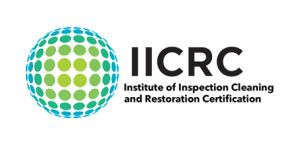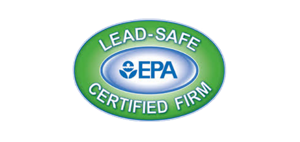Water damage is one of the most common and costly issues that homeowners face. From burst pipes to leaky roofs, water damage can quickly turn into a nightmare. However, there are steps that you can take to prevent water damage and protect your home from potential disasters.
By following these essential water damage prevention tips, you can save yourself from headaches and expensive repairs.
Key Takeaways:
- Water damage is a common and costly issue that homeowners face.
- There are essential steps you can take to prevent water damage and protect your home.
- By following these tips, you can save yourself from headaches and expensive repairs.
Understanding the Causes of Water Damage
Water damage is a serious issue that can cause extensive damage and costly repairs if left untreated. Understanding the causes of water damage is crucial to take preventative measures and protect your home. The most common causes of water damage include:
- Burst pipes: Pipes can burst due to freezing temperatures, high water pressure, or general wear and tear.
- Leaking roofs: Over time, roofs can develop leaks due to age, weather damage, or lack of maintenance.
- Faulty plumbing: Broken or faulty plumbing systems can cause leaks or bursts that result in water damage.
- Natural disasters: Floods, hurricanes, and heavy rain can all cause water damage to homes and buildings.
It’s important to keep these causes in mind and take preventative steps to avoid water damage in your home.
Image related to causes of water damage:
Maintaining Your Plumbing Systems
Proper plumbing maintenance is the key to preventing water damage in your home. By taking the necessary steps to maintain your pipes, fixtures, and appliances, you can greatly reduce the risk of pipe bursts, leaks, and other plumbing-related issues.
Here are some tips for plumbing maintenance:
- Regularly check for signs of leaks or moisture buildup in your pipes and fixtures.
- Insulate your pipes to protect them from freezing during colder months.
- When leaving your home for an extended period, turn off your main water supply to prevent any potential water damage.
- Only flush toilet paper and waste down your toilet. Do not flush anything else, such as baby wipes or feminine hygiene products, as they can cause blockages in your pipes.
- Have a professional plumber inspect and maintain your plumbing systems annually.
By following these plumbing maintenance tips, you can prevent potential pipe bursts and leaks that can lead to water damage in your home.
Protecting Your Home’s Exterior
To prevent water damage from infiltrating your home, it’s important to make sure your home’s exterior is protected. Follow these tips to help safeguard your property:
| Tip | Description |
|---|---|
| Inspect and Maintain Gutters and Downspouts | Regularly inspect and clean your gutters and downspouts to ensure they are free of debris and working properly. Clogged gutters can cause water to overflow and infiltrate your home’s foundation, leading to water damage. |
| Ensure Proper Drainage | Make sure your yard is properly landscaped to ensure water is draining away from your home. This can help prevent water from pooling around your foundation and infiltrating your home. |
| Seal Cracks and Holes | Inspect your home’s exterior for any cracks or holes and seal them properly to prevent water from infiltrating your home. This includes areas around windows, doors, and the foundation. |
| Consider a Water Barrier | If you live in an area prone to flooding or heavy rainfall, consider installing a water barrier around your home’s foundation to help prevent water from infiltrating your home. |
By following these tips, you can help protect your home’s exterior from water damage and potentially save on costly repairs. Regular maintenance and inspection can go a long way in keeping your home safe and dry.
Safeguarding Your Interior Spaces
Water damage can wreak havoc on the interior of your home, causing costly repairs and potentially harmful mold growth. By taking precautions and monitoring your water usage, you can prevent interior water damage and protect your home. Follow these tips to safeguard your interior spaces:
- Install water detection devices – Water detection devices can alert you to potential leaks in your home before they cause significant damage. These devices can be installed in areas prone to water damage, such as basements and bathrooms.
- Monitor your water usage – Keep an eye on your water bill each month to ensure there are no significant increases in usage. If you notice a spike, it could be a sign of a leak in your home.
- Regularly check for signs of leaks or moisture buildup – Check under sinks, around toilets, and in other areas that may be susceptible to water leaks. Look for signs of moisture or water damage, such as warped or discolored walls or floors.
- Properly maintain your appliances – Your appliances, such as washing machines and refrigerators, can also be a source of water damage if not properly maintained. Regularly check for leaks and ensure your appliances are functioning correctly.
By following these interior water damage prevention tips, you can protect your home from costly and potentially harmful damage. Remember to stay vigilant and monitor your home for any signs of water damage or leaks.
Conclusion
As a homeowner, it’s important to take water damage prevention seriously. By following the essential tips we’ve provided in this article, you can protect your home from costly repairs and potential dangers to your health and safety.
Remember to always stay proactive in maintaining your plumbing systems, protecting your home’s exterior and interior spaces from water damage, and being aware of the common causes of water damage.
With these measures in place, you can rest assured that your home is well-protected against the damaging effects of water. Stay safe and protected, and enjoy your beautiful home for years to come.
FAQ
What are some common causes of water damage in homes?
Common causes of water damage include burst pipes, leaking roofs, faulty plumbing, and flooding.
How can I prevent water damage in my home?
To prevent water damage, you should maintain your plumbing systems, protect your home’s exterior, safeguard your interior spaces, and be proactive in monitoring for leaks and signs of water damage.
How can I maintain my plumbing systems?
Proper plumbing maintenance includes regularly checking for leaks, insulating pipes, clearing drains and gutters, and ensuring proper ventilation in areas prone to moisture.
What steps can I take to protect my home’s exterior?
You can protect your home’s exterior by maintaining your gutters and downspouts, sealing cracks in walls and foundation, diverting water away from your home, and properly landscaping your yard to promote drainage.
What can I do to safeguard my interior spaces?
Safeguarding your interior spaces involves installing water detection devices, monitoring your water usage, regularly checking for leaks or moisture buildup, and addressing any plumbing issues promptly.
Why is water damage prevention important for homeowners?
Water damage prevention is important for homeowners to protect their properties, avoid costly repairs, and maintain a safe and healthy living environment.






